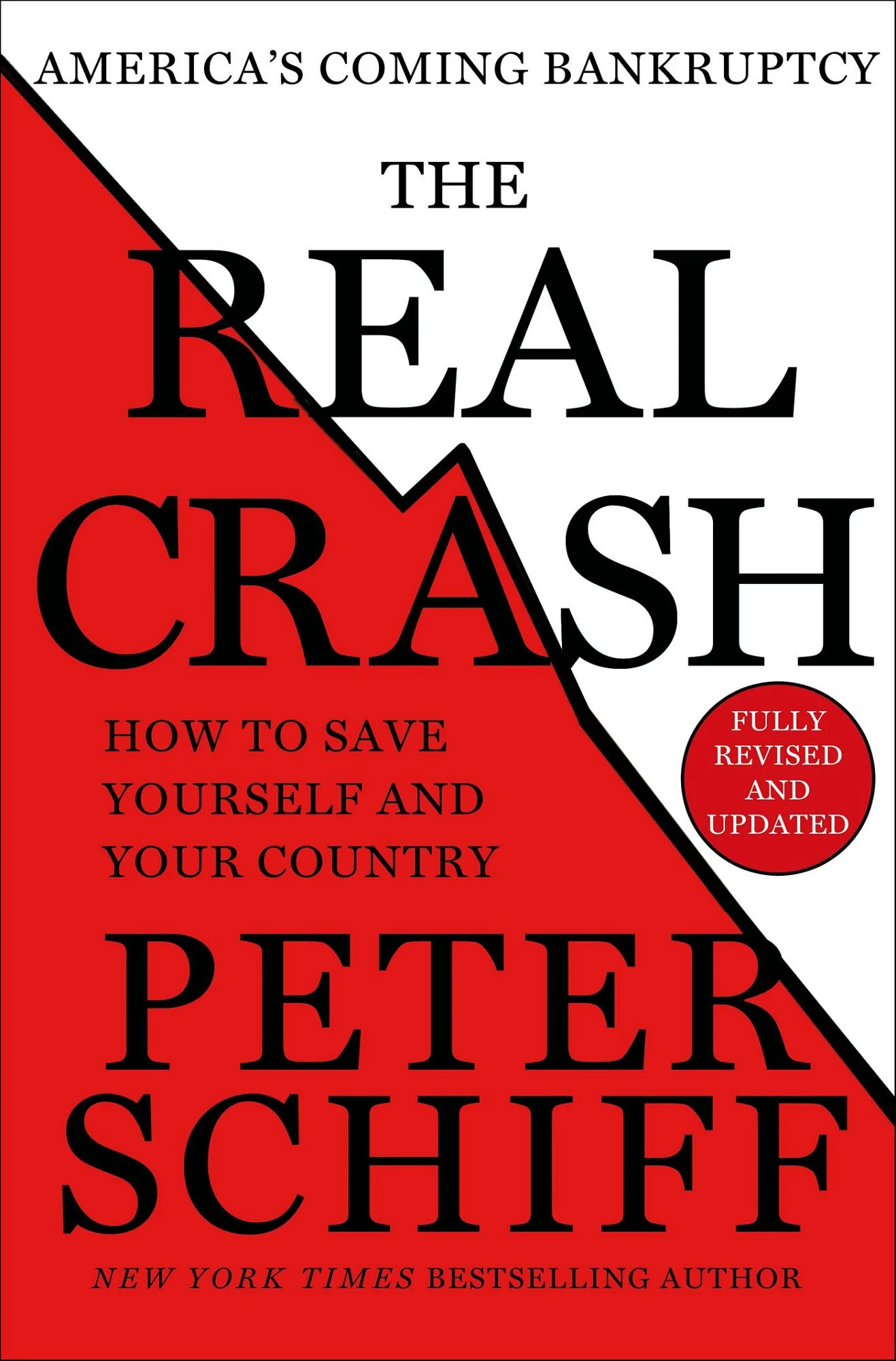Paying Attention To Peter Schiff
He's been predicting the next crash since the last one. Is he finally right?
I’m reading Ray Dalio’s principles books (more on that in an upcoming post), and one thing he talks about is the timing of being right. Howard Marks, another famed investor, has pieces on this, too. Being right is often a lonely path. You can be waiting a long time to be proved right. The time in between deciding to push forward against the tide and the tide turning in your direction can often be personally and financially difficult.
Peter Schiff has been waiting a long time. After correctly forecasting the Great Financial Crisis, he’s been banging the drum of a bigger crash coming for over a decade. He updated his book CrashProof with CrashProof 2.0 in 2011 and then in 2014 wrote The Real Crash, subtitled America’s Coming Bankruptcy. This is not a cheery book and his potential solutions for avoiding cataclysm involve a complete disruption of the U.S. economy and plenty of pain for consumers. He’s not a big fan of Social Security or unemployment insurance and that’s just for starters.
I picked up that book for free (thanks, Book Thing) and started reading it before the end of last year. At first, some of his hand-wringing sounded a bit extreme. I was aware of the growing issue of national debt, but I also believed that the soft power of the United States and the U.S. dollar’s role as the world’s reserve currency were suitable protection against any real disaster. Then this year started.
Like many people, I assumed that Asian manufacturers need us more than we need them. That may be true for now, but that view is reductionist and assumes there are no other large populations to sell to. If anything, it’s the overconsumption of the American consumer that makes us so important. But as other countries develop a rising middle class they are quickly catching up in consumption. We’ve exported our bad habits, our status seeking, our love of processed foods, our obsession with brand names. Even in 2011, Schiff was talking about this, saying China’s manufacturing boom was akin to the U.S.’s WWII military economy and its post-war boom in consumer manufacturing and consumption.
To study history is to know that empires rise and fall, but that the sweep of time is long. If we are in a decline, we’ve likely been there since the 1970s, when the U.S. switched from a manufacturing to a service economy. Countries tend not to shift back into manufacturing, and the economics of bringing back jobs that left decades ago are improbable at best.
Part of our mythmaking has been that we are an idea economy now, we’ve brought the world fantastic life improvements and technology leaps. This has been true, but there is also no monopoly on intelligence. We helped seed innovation in other countries and educated the next generation of international entrepreneurs. In a world where globalization is the norm, that works well; the rising tide lifts all boats. America’s biggest export has been the ideal of democracy and capitalism leading to better economic outcomes. Switching to a protectionist economy does the opposite.
If you had read Schiff’s books and they scared you out of the stock market or just out of big tech stocks, you likely would have been frustrated. You would have been waiting for a disaster that didn’t arrive, while others got rich. That doesn’t mean that Schiff was wrong, necessarily. It may just mean he wasn’t right then.
The path he chose didn’t make him destitute. His firm has been successful for years. It’s more that he wasn’t as right as he could have been. More people are starting to think that what he was advising a decade or more ago, investing in gold, focusing on dividend stocks, and investing internationally, is the path forward now. Are they ahead of the curve, or will those moves again mean they miss out on future gains in the stock market?
Two things are true: consumer consumption is likely to slow, and the U.S. debt is massive. It was true when Schiff wrote these books (only the debt was four times smaller) and its’s true now. However, as stupidly optimistic as it sounds, things have a way of working out. I’m not saying there won’t be a recession or that we aren’t in real danger on a variety of fronts. That is undeniably true. An investor I admire, Scott Galloway, has also been sounding the alarm about moving away from U.S. equities, not just because of the current situation but because European companies are valued more cheaply and may have more upside.
What has Schiff been doing lately? The same thing he’s been doing for the last decade, saying that a global disruption is coming, that the foreign purchasing of U.S. Treasuries is about to screech to a halt. He’s been touting gold and international stocks as well as bashing Bitcoin. He’s still not right, not fully vindicated, but maybe a bit less wrong than he was six months ago. Worth paying attention to but maybe not fully following.






Guess it's time to load up on gold bars eh?